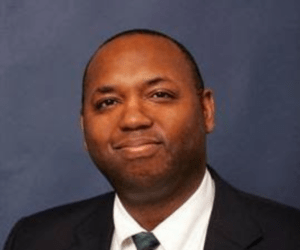A conservative Christian ethicist told students at a Baptist college March 2 that Marxist ideologies have gained a foothold in at least two of the six seminaries owned and operated by the Southern Baptist Convention.
Craig Vincent Mitchell, president of the Dallas-based Ethics and Political Economy Center, made the comments in response to a question following a lecture on “the real issue with social justice” at Louisiana College, a private Christian school affiliated with the Louisiana Baptist Convention.
Asked about a controversial SBC resolution last year affirming the use of frameworks such as critical race theory and intersectionality as “analytical tools” to aid in evaluating human experiences, Mitchell replied: “Okay, you want to know what they’ve neglected to mention in that definition? It is a useful analytical tool if you are a Marxist.”

Craig Mitchell
Mitchell, an ordained Baptist minister, earned both his M.Div. and Ph.D. at Southwestern Baptist Theological Seminary in Fort Worth, Texas, before serving on faculty as associate professor of cultural studies from 2002 until 2014.
He serves as senior fellow for the Cornwall Alliance for the Stewardship of Creation, an evangelical network skeptical of climate change formed in 2005 to counter efforts by evangelical leaders to fight global warming.
He is a board member for the Institute of Religion and Democracy, a conservative think tank that promotes theological and political conservativism in mainline Protestantism, and served as a research fellow for the SBC Ethics & Religious Liberty Commission from 2005 until 2014.
Mitchell said in his lecture that ideas of intersectionality, critical theory and gender politics being discussed in today’s “drive for social justice” developed from adaptations of Marxist philosophy dating back to the 1880s.
Critical race theory is an idea from social sciences that racial inequality is the result of structures created by white people to maintain their place of privilege. Intersectionality goes a step further, asserting that people are often disadvantaged for multiple overlapping reasons including race, class, gender identity, sexual orientation and other social markers.
Asked by a student which seminaries are teaching critical race theory, Mitchell said: “I taught at Southwestern for 12 years. I still have a bunch of friends who are on faculty there. There’s nobody I know at Southwestern who’s actually teaching critical race theory, nobody who’s actually teaching intersectionality there.”
In comments reported by the Louisiana Baptist Message with a link to audio of his full address, Mitchell named a particular professor at Southeastern Baptist Theological Seminary he said is teaching critical race theory. Looking at some of the things the professor has said, Mitchell commented, “Frankly I am surprised he is still on the faculty.”
He named three professors at Southern Baptist Theological Seminary in Louisville, Kentucky, including a New Testament professor who by all accounts “doesn’t really teach New Testament; he just teaches critical race theory.”
Mitchell said he is not aware of anyone at New Orleans Baptist Theological Seminary teaching such views.
“Jamie Dew is the new president,” he said. “I’ve known Jamie for years. I don’t think Jamie would go for that. But then I never imagined that Danny Akin or Al Mohler would support this sort of thing.”
Mitchell did not discuss the other two SBC seminaries: Midwestern Baptist Theological Seminary in Kansas City, Missouri, and Gateway Seminary, formerly known as Golden Gate Baptist Theological Seminary, in Los Angeles.
Despite his concerns, Mitchell said he does not believe Southern Baptists have gotten to the point where they were decades ago prior to the “conservative resurgence” that moved the denomination sharply to the right.
“I remember talking to Richard Land, who was president of the Ethics & Religious Liberty Commission before Russell Moore, and here’s one of the things that he said which really kind surprised me,” Mitchell said.
“He said, ‘You know, Craig, this is a problem, but when you keep it in perspective, it’s not as bad as it was during the conservative resurgence. We were dealing with people who didn’t believe in the Bible.’ He says, ‘We were dealing with people in some cases who didn’t even subscribe to the deity of Christ.’ He says, ‘At least we agree on the authority and sufficiency and inerrancy of the Bible.’ He says ‘We’ve got that going for us.’”
“I think in some ways it’s not as bad as it was, but in other ways it is,” Mitchell said.
“In Resolution 9 they said that critical race theory is a useful analytical tool,” he said. “Well, it is not a useful analytical tool to get people saved, I can tell you that. When you look at critical theories, the only thing that they were really concerned about is changing society in a Marxist direction.”
Mitchell said those promoting the social gospel – a view associated with New York City pastor and theologian Walter Rauschenbusch describing the Christian duty to improve the economic, moral and social conditions of the poor – distort the true gospel by turning it from the eternal to the temporal.
“And you know, I’ll be blunt: I think all those people should be removed from their positions. Plain and simple,” he said. “This stuff is not helpful for anything. In fact all it does is divide. It divides us rather than brings us together.”
